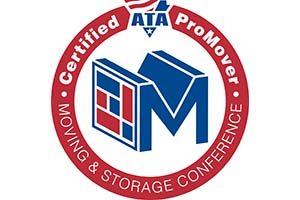
Moving Out of Your Parents’ Home
A Guide to Independence
Congratulations on the fact that you are ready to move out of your parent’s home! If you are a 20-something and you find yourself just now ready to go out on your own, don’t fret. It’s become routine. In fact, today, 33% of 25 to 29-year-olds live with their parents or grandparents.
Remaining at home with your parents has become a pretty smart financial move that can set you up for a secure future. But the other side of this is to know when it’s time to move on to your next chapter in life.
Moving, regardless of your age or life status, requires preparation and planning. There’s not just a need to plan for the physical change but the changes and challenges that come from being on your own. A lot of this begins with the process of moving.
Here are a few steps that are essential to moving and beginning a new life outside your parent’s home.
Be sure to communicate with your parents. It’s the best thing you can do. Explain your intentions– and, if necessary, your moving plan. Let them know how much you appreciate the time you have had at their home, but now it is time for you to begin a new chapter in your life.
Develop a “move out” plan This includes communicating with all parties involved. Schedule a “move” date. Use this date as a starting point for going forward. It is your end goal but there are many things that must happen before you open and close the door to your new “digs.”
Your plan should include a budget and the goals you want to reach before the movers even step in to help. This plan includes how you plan to live. Are you going away to college? Or as a graduate, are you looking for an apartment or a home? Are you open to having a roommate and someone who shares the bills? As you do your research, you can decide where you will hire a mover to get you where you need to go or do it yourself.
Many people discover they can organize a move, pack, and unpack, but they need strong, dependable help on the day of the move. That is where a professional moving team helps.
Making less when everything costs move: Establish good credit. As you research, plan, and prepare, make a conscious effort to establish good credit. A great credit score can really make moving much easier. You can check your credit rating online with companies like Experian. If you haven’t established your credit, this is the perfect time to get started.
One of the best ways to establish credit is to get a credit card with low interest and limits. Use it to purchase gas, concert tickets, and dinner out. Be sure to pay your bill on time and “in full” every month. Most banks and businesses report credit scores on a monthly basis, so credit builds fast. Dave Ramsey offers solid financial advice for any phase in life. Check out his website for budgeting suggestions and much more.
Remember: property managers and landlords run credit checks before you can rent. They look at your credit history and assess whether you will pay your bill and rent on time. This is the same for buying a home. If you plan to rent without a credit check, you will have to have a person with excellent credit co-sign with you.
Save for your move! With every paycheck, set aside a certain amount that goes toward your move. The way you know how much to save is to begin with a budget. This is especially important in this day and time when expenses are increasing. Budgeting is NOT restrictive, it’s freeing because it shows you where you are, and what you need to do to reach your goals.
Divide your paycheck and automate those funds to go toward bills, goals, and choice spending. If you can, put 20% toward your saving goals.
If you are not sure how much or how little money you have each month, begin with the basics. Track your spending for two to four weeks. Knowing where your money is going will help you to budget for your move and save for the future.
Look for an area to live that fits your budget Once you have a budget in hand, you can begin to look for that “perfect” area to live. Make sure you can afford your dream location and be able to continue to save. It does need to be a safe area that offers some of the things you enjoy —running/walking trails, parks, recreation, like-minded people, shopping and more. Don’t overspend and don’t choose an area that does not fit “you.”
Call at least three movers and ask for quotes. Are you moving across the city, the state, or the country? Any potential mover will want to know. Be honest and specific about how much you are moving. If your mover cannot come to evaluate your content for the move, then you must be honest about how much you have. They send their teams out based on the estimate. Don’t be the person who says, “I only have a couple of bedrooms and a den,” when you have a 3,200-square-foot home! Most people leaving their parent’s home do not have this much square footage, but you get the idea: If you have a little, but honest. If you have a lot, be honest!
Donate or sell items that you no longer use This is an easy one. Don’t start out with clutter. Clear out things that you have not used in a year. If it is forgotten in the back of your closet, then it’s time to let it go!
Purchase packing supplies You have saved, planned, set up a budget, and settled on a moving team, and now it is time to buy moving supplies. You can do this from either your moving company or from hardware stores that have packing supplies, including boxes. If you don’t want to buy boxes, you can take the “old” route and ask grocery store managers if they have discarded boxes that you can have.
Pack Read and study how to pack correctly! Far too many people toss items at the last minute into open unlabeled boxes. Pack with purpose and organization so you arrive at your new home and know what is in each box. This means labeling and packing correctly. You can pack like a pro! Use packing paper and wrap those breakable items.
Turn on utilities, including cable. The last thing you want to do is to forget to have your electricity turned on before your move-in date. The same is true with cable, internet, or satellite connections.
Change your address A change of address can take up to a month, so as soon as you have your moving date settled, go online and change your address with the postal system. You want to receive your mail in a timely way. Bills must be paid, especially if you are not set up to pay them online.
Celebrate your move! If you plan your move correctly, then celebrating this time in your life will come sooner rather than later. People who drag their moves out battle with stress and feeling overwhelmed and tired. Plan, budget, and celebrate. Building blocks for a great move and the very best outcome.
Photo by Karolina Grabowska: on Pexels.com







